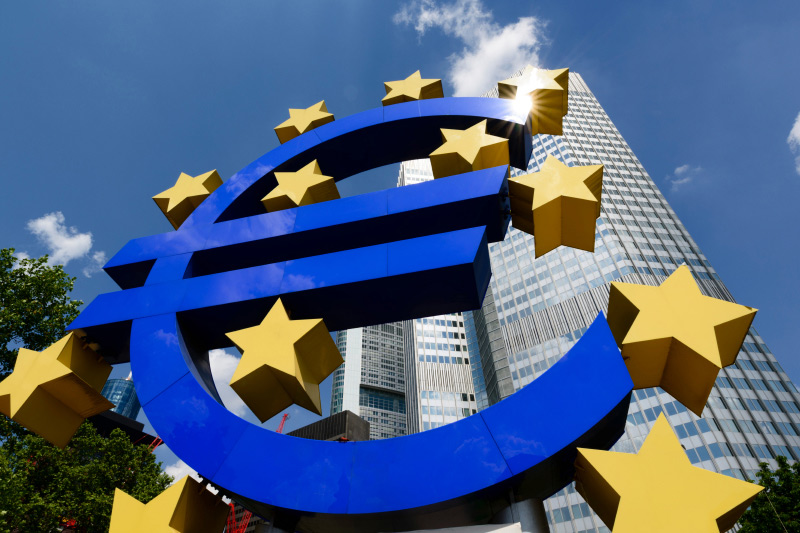By Michelle Martin and Martin Santa
BERLIN/BRUSSELS (Reuters) - Euro zone economic growth ground to a halt in the second quarter as Germany's economy shrank and France's stagnated.
The zero growth reported by statistics agency Eurostat on Thursday was cause for alarm throughout the 18-nation region, which is already bracing for the impact of sanctions imposed on and by Russia over Ukraine.
Germany, Europe's largest economy, contracted by 0.2 percent in the quarter, undercutting Bundesbank forecasts that gross domestic product would be unchanged. Foreign trade and investment were notable weak spots, the German Statistics Office said on Thursday.
"Today's figures show that the upturn remains too weak to withstand external shocks" - such as the Russian sanctions - "meaning that GDP growth will probably remain stuck in stop-and-go mode," said Peter Vanden Houte, chief euro zone economist at ING.
France fared little better; its GDP failed to grow for the second quarter in a row. That forced the French government to confront reality, saying it would miss its budget deficit target this year and cutting its 2014 forecast for 1 percent growth in half.
Italy, the euro zone's third-largest economy, slid back into recession for the third time since 2008 in the second quarter, shrinking by 0.2 percent. Pressure grew on Prime Minister Matteo Renzi to complete promised structural reforms.
"Bottom line is that the ECB will have to maintain an extremely accommodative monetary policy, even if the U.S. will see a first rate hike already in 2015. The bank will likely be pressured to undertake additional action if some of the downside risks materialize," ING's Vanden Houte said.
The European Central Bank left interest rates unchanged at record lows in July. But the bank signaled that it stood ready to take more action - perhaps printing money and buying bonds - if the region slides towards deflation.

"Looking ahead, recent leading indicators are not delivering a very promising message. Risks from Russia - directly and via second-round effects from CEE region - cannot be underestimated. Less dynamic growth for 3Q14 and 2014 is likely," said Martina von Terzi, an analysts with UniCredit.
(Writing by Mike Peacock; Editing by Jeremy Gaunt, Larry King)
